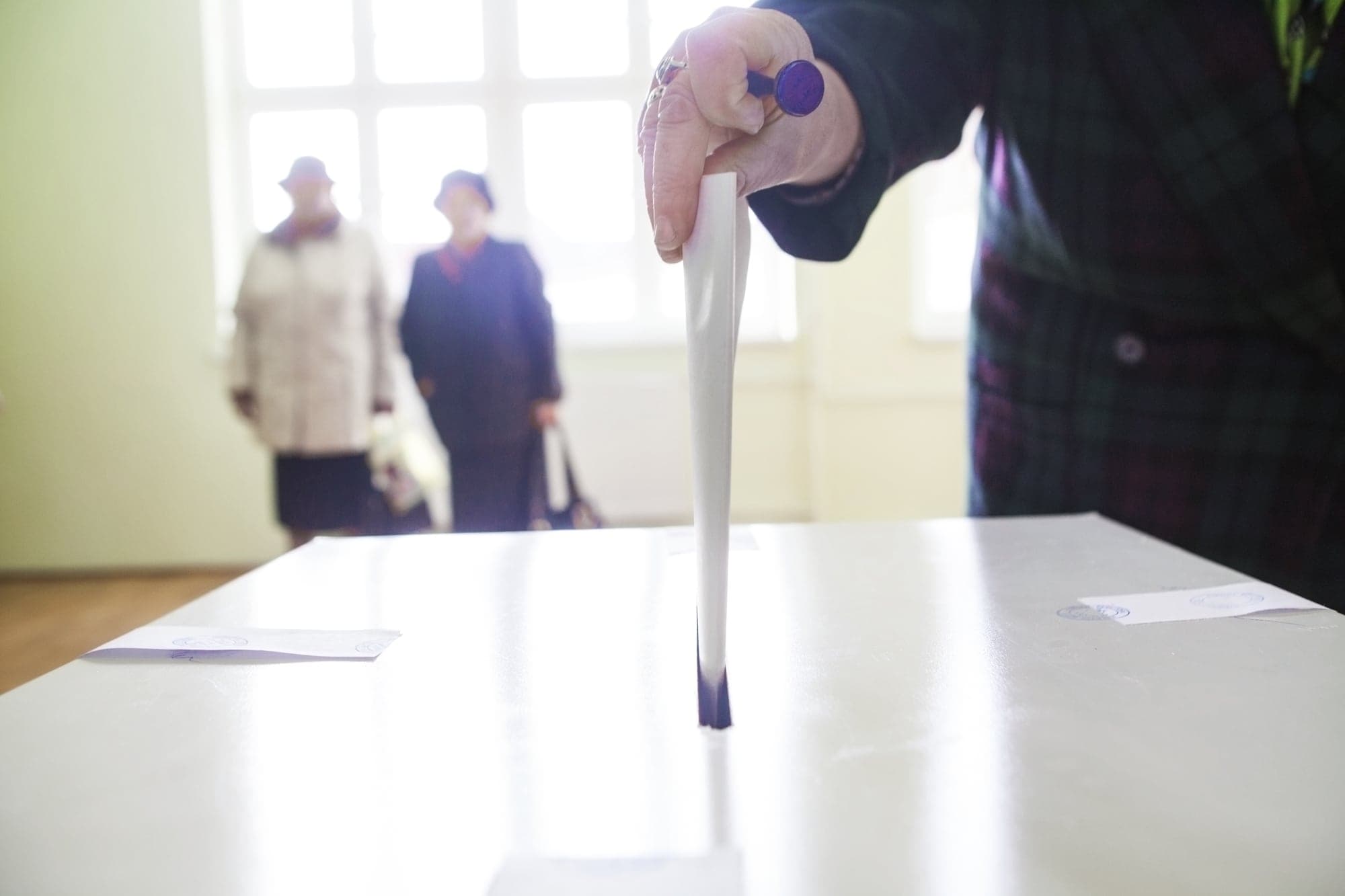
Share
You’ve heard it countless times at this point. People urging you to “get out and vote”. No matter what, by now you’ve been fed droves of information on how important election day is. You’ve registered. You have a plan for safely and efficiently making sure your voice is heard.
Surely by now you probably have a good idea of the people and initiatives you plan to support. But let’s take a step back. Let’s look at what this election might mean for the global economy and then zoom in a bit to e-commerce.
Of course, no matter who you support, November 3rd will impact you, potentially in ways you wouldn’t have anticipated.
So, let’s see if we can help prepare you just a tiny bit more. No matter if you’re a shopper, a merchant, or just someone interested in commerce, this should give you a better sense of what to expect.
Here are 6 thoughts on how Election Day will be monumental for the 2020 e-commerce landscape.
1. The election might not be decided the night of November 3rd and we have to prepare for that
Due to a projected rise in mail-in (absentee) voting amid the pandemic, analysts anticipate that the winner of the 2020 presidential election is likely to be determined over the course of several weeks, rather than a matter of hours or days as Americans have come to expect on election night. In an April survey, Pew Research found that two-thirds of U.S. adults predicted the pandemic would affect their ability to vote.
Facebook’s Mark Zuckerberg acknowledged the importance of recognizing this new reality in a recent interview with AXIOS on HBO. Zuckerberg said, “Facebook and the media need to start preparing the American people that there’s nothing illegitimate about this election even if it takes additional days or even weeks to make sure that all of the votes are counted.”
E-commerce takeaway: If there’s an issue with the timing of the result or if things drag on, consumers and the market may reflect that. I believe this could lead to less consumer spending as more uncertainty hits, but depending on the situation, it could also spur spending depending on how people align with decisions they think the perceived presidential winner will make regarding the economy. Of course, from an e-commerce and affiliate marketing perspective, we don’t expect a slowdown. Anecdotally, expanding our headcount by a third during this time signals our all-hands-on-deck approach. We’ve grown during a time where we’ve seen that digital sales aren’t slowing down and the data is strongly suggesting that they won’t.
2. Tech is going to play a major part in helping us understand our new reality
Given the influential role social media and technology platforms play in informing and shaping public opinion, Facebook and other platforms have been under immense scrutiny heading into the 2020 election. In fact, Google, Facebook, Twitter, and Reddit are all meeting together regularly with national security experts as well as members of the intelligence community to discuss potential threats to election integrity.
In the last 90 days, most — if not all — U.S. technology platforms have unveiled new policies to combat misinformation, protect election integrity and organize news updates from authenticated sources via “information hubs” within their respective platforms.
According to The Wall Street Journal, representatives from Facebook, Google, and Twitter said they are “working closely with election officials to safeguard the process, including strengthening policies and procedures that were put in place after the 2016 election.”
Many tech companies are also running voter registration drives and big promotions in addition to these policy changes. In fact, Axios reported this week that over 400,000 people have registered to vote on Snapchat, and Silicon Valley companies ranging from Apple to Twitter are giving their workers paid time off to go vote.
E-commerce takeaway: I would argue that although the uncertainty issue is still present, e-commerce and the act of finding customers through digital channels will continue. Of course, also, the increase in political ads and social messaging might replace normal commercial activity across social media and therefore eyeballs might be drawn to election coverage versus finding new products and services. This is all theoretically speaking, though, as consumer spending would’ve probably been affected by political ads already up to this point, and we have not seen such effects. Our data reports YoY growth at Advertise Purple in the months of September and October.
3. Political uncertainty and economic uncertainty go hand-in-hand and retail CEOs are feeling somewhat threatened by that
For advertisers, the question still remains if a potentially prolonged period of time between Election Day and the official results of the election will depress sales and consumers’ willingness to shop. However, digital retail is proving to be quite different in the post COVID climate.
From a July summer briefing:
“According to June data from YPO, 50 percent of CEOs worldwide say that diminished demand for their company’s products and services is the biggest obstacle their business faces right now. Additionally, 44 percent believe changes in consumer behavior are among the greatest obstacles to their business’ viability. From The Drum, “when determining what to buy, value, quality, and reliability still matter more to consumers than brand purpose and social virtue, despite today’s contentious and ever-changing cultural conversation.”
E-commerce takeaway: I think there’s fear that consumers will be impacted by this possible confusion around who our president will be or if the incumbent or challenger will concede defeat. That said, we have not been in a pandemic of this scale before, ever. Therefore, you kind of have to throw data aside. Q4 has been predicted to be a major saving grace for our economy this year and families may still want to provide a great holiday period after such a difficult year. Some semblance of normalcy is always welcomed after traumatic times.
4. Historically, election data has been somewhat incongruous
The findings of reports and research vary greatly on whether or not uncertainty around elections impacts consumer demand or smaller wallet share, likely because there are simply too many factors to consider.
This year will be no exception, due to the current economic climate, financial markets and the financial health of the private sector, public opinion of the candidates, prevailing issues and policies, global economic affairs, and countless other determinants.
E-commerce takeaway: Again, this aligns with the last bit from #3. This specific year, these specific candidates, this virus, etc makes looking back at 2016 or any other election year almost a futile effort. You can’t drag and drop from other election years because there are simply too many different factors. Therefore, we’re better off looking at recent trends. And in that case, MoM and YoY we’re seeing people are buying certain products to alleviate their stress in a pandemic. I believe that trumps the political process (pun only somewhat intended).
5. The effect of sentiment on spending, generally
According to research conducted by The University of Chicago Booth School of Business in partnership with Princeton University, consumer sentiment toward the results of an election does not make people spend any less. The study spanned four presidential elections and identified a correlation between “a voters’ ideological opposition towards a winning candidate and a lower score on the Michigan Consumer Sentiment Survey,” finding that the correlation did not prove causality.
In the study, when President George W. Bush was elected in 2000, “negative sentiment had no effect on consumers’ self-reported spending plans or … on their subsequent credit card use.” In other words, consumers who weren’t pleased with the election outcome reported no effect on what they spent or planned to spend. Across domestic and international markets, “there appears to be very little evidence to support the claim that an election will negatively impact consumer spending.”
Another study by Bank of America and Merrill Lynch looking at Italy and France observed that consumer confidence is “very well” explained by a few “hard economic variables,” including income and unemployment numbers. It was found political shifts alone do not have a measurable impact on consumer confidence.
In 2016, consumers were distracted by the contentious election, leading to reduced spending. Adobe Digital Insights found that retailers “lost an estimated $800 million in revenue from online sales” between November 1 and November 14 in 2016. The most significant decline took place immediately after the election on November 8, as total sales growth lowered to 1.3 percent, versus the forecasted 7.8 percent growth. In total, the dip marked the “slowest growth rate for retail sales” that Adobe had seen in the U.S. since 2012. Consumer spending around the 2016 election mirrored similar trends seen in the aftermath of Brexit in the U.K., where retail experienced a 0.9 percent decline during the month following the vote to split from the European Union.
Political ad saturation can certainly influence consumer spending as well, simply by over-indexing compared to other advertisements and relevant events. In July, Kantar Media revised its political ad spend projection to $7 billion, most of which is anticipated to be spent on TV and digital via campaigns and PACs this election year.
When considering this data, it’s important to recognize that this year’s campaign trail will look much different since campaign events, bus tours, and big speeches have been canceled, reorganized and replaced with virtual appearances and socially-distanced campaign spots. These changes have resulted in more money being earmarked for digital advertising than during previous elections.
Diving further into this research, it is apparent that most sectors — from apparel to B2B, fitness, and home & garden — have seen sales dip during election week, but rebound shortly thereafter. Interestingly, food sales, donations, and publishing and entertainment sales have increased during election week.
Of course, no other election in modern history has been conducted during our current circumstances: An ongoing pandemic, economic uncertainty and record-high unemployment, and massive changes in consumer lifestyles and behavior, with a backdrop of social unrest over racial inequality and other injustices, the prevalence of partisan divides and conspiracy theories, increased corporate accountability, and a series of extreme weather events occurring throughout the country — from hurricanes in Louisiana to wildfires in Washington.
E-commerce takeaway: Again, we’re in unprecedented times as you’ve heard millions of times in advertisements for cars. But, that said, this data supports what we’ve mentioned before. There is little to no historical precedent for elections making a huge difference in consumer spending.
6. So, simply put, how will the U.S. election affect spending?
Answering the question: “How will the 2020 U.S. election impact consumer spending?” requires a certain amount of conjecture and pure guesswork, because no one really knows the answer yet. Based on past elections, it is reasonable to expect some softness in consumer spending leading up to Election Day and potentially in the days and weeks following November 3rd.
Axios and others are already anticipating delays in reporting election results, as a projected 80 million mail-in ballots are counted. Therefore, it is also reasonable to presume spending could return to “normal levels” once we get past election night and accept the outcome or prospect of delayed results. By then, the run up to the holiday season and shipping deadlines will be upon us, which could rebound spending.
With more platforms and publications already preparing voters that it could take several weeks before the election is ultimately decided, it is less likely to dominate online conversation or the consumer psyche for the duration of November.
That said, one thing to call attention to is Mark Zuckerberg’s comments on potential post-election violence. In an interview with AXIOS on HBO, Zuckerberg shared, “There is, unfortunately, I think, a heightened risk of civil unrest in the period between voting and a result being called. I think we need to be doing everything we can to reduce the chances of violence or civil unrest in the wake of this election.”
Another wrinkle: The U.S. presidential candidates have each been preparing legal teams with election protection experts to ensure election integrity. Expect a legal battle, whatever the results may be.
The upside for national retailers is their ability to turn potentially unfavorable conditions (and changing cultural dynamics) into a sizable opportunity that reconstructs the holiday season. By turning consumers’ attention back to the holidays, there will still be time to bring some much needed holiday cheer to the close of a tumultuous year.
E-commerce takeaway:
- With this last e-commerce takeaway, please there is reason for optimism and opportunism for brands large and small:
- Salesforce predicts a 90 percent YoY increase in digital sales that use curbside or in-store fulfillment capabilities, and roughly 54 percent of shoppers already report they plan to conduct all or most of their holiday shopping exclusively online (more than double last year’s 22 percent).
- The rescheduled Amazon Prime Day was long-rumored to be the “kick-off” event for holiday shoppers, but as more national retailers announce their own sales (Target, Macy’s, Guess, Lowe’s, and more), October looks to be a season of savings and deals across brands and categories, not just via Amazon.
- Bloomberg reports that more than a dozen major retailers are participating in 10.10, a new retail sales holiday — emulating China’s Singles’ Day on 11.11 — to officially usher in the holiday season. By pulling holiday sales (and spend) further up in the calendar year, retailers are hoping to earmark substantial earnings before the election has the potential to impact consumer sentiment and to avoid the potential impact the election outcome could have on Black Friday/Cyber Monday sales.
Final thoughts:
The 2020 U.S. election is going to have a major impact on consumers, businesses, and the economy, regardless of the results. As we get closer to Election Day, we’ll continue to share more data and news information regarding how current events are shaping consumer sentiment and impacting performance for your brand. Stay tuned!
—
If interested, please reach out at [email protected].




